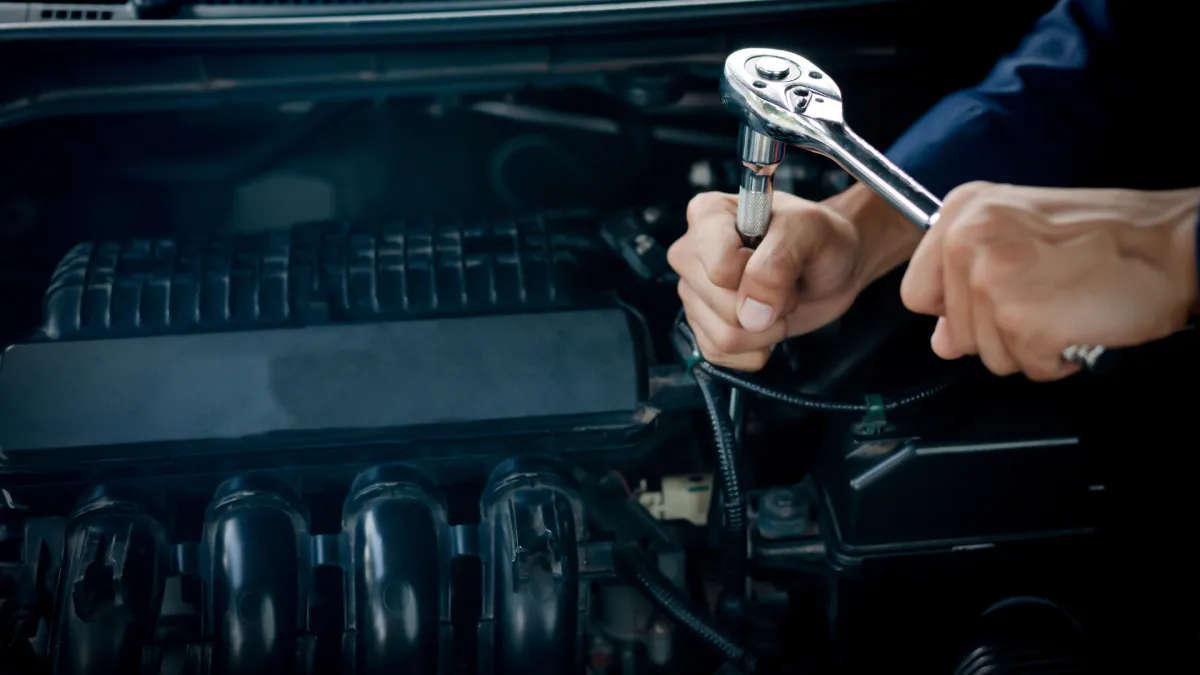BLOGS

Avoid Costly Repairs: Regular Maintenance You Can’t Skip
Avoid Costly Repairs: Regular Maintenance You Can’t Skip
Owning a car is a significant investment, and like any valuable asset, it requires regular upkeep to remain reliable and efficient. Skipping routine maintenance might seem like a way to save time and money, but neglecting your vehicle’s needs can lead to costly repairs down the road. Here are the key maintenance tasks you can’t afford to skip if you want to keep your car running smoothly and avoid unexpected expenses.
1. Regular Oil Changes
Oil is the lifeblood of your car’s engine. Over time, oil breaks down and becomes contaminated with debris, reducing its ability to lubricate engine components. Skipping oil changes can cause engine wear, overheating, or even complete engine failure.
When to change it: Refer to your owner’s manual, but generally every 5,000 to 7,500 miles for modern cars.
2. Tire Maintenance
Your tires are the only part of the car in direct contact with the road, making their upkeep critical for safety and performance. Poorly maintained tires can lead to blowouts or reduce fuel efficiency.
Key tasks:
Check tire pressure monthly and keep it at the recommended level.
Rotate your tires every 5,000 to 7,000 miles.
Inspect tread depth and replace tires when necessary.
3. Brake System Inspections
Your brakes are vital for safety. Worn brake pads, low brake fluid, or damaged rotors can compromise your ability to stop quickly and safely.
When to inspect: Have your brakes checked at least once a year or immediately if you hear squealing, grinding, or feel reduced braking performance.
4. Fluid Checks and Replacements
Your car relies on several fluids to operate smoothly, including coolant, transmission fluid, brake fluid, and power steering fluid. Neglecting these can lead to overheating, transmission failure, or difficulty steering.
What to do:
Check fluid levels monthly.
Replace fluids according to your vehicle’s maintenance schedule.
5. Air Filter Replacement
Your engine’s air filter prevents debris and dust from entering the engine. A clogged air filter can reduce performance and fuel efficiency.
Replacement interval: Typically every 12,000 to 15,000 miles or as recommended in your owner’s manual.
6. Battery Maintenance
Your car’s battery powers everything from the starter to the electronics. Over time, it can lose its charge or corrode, leaving you stranded.
Tips:
Inspect your battery terminals for corrosion.
Test your battery’s charge annually.
Replace the battery every 3 to 5 years.
7. Timing Belt or Chain Replacement
The timing belt or chain ensures your engine’s valves open and close at the right time. If it fails, it can cause severe engine damage.
When to replace: Check your owner’s manual, but usually every 60,000 to 100,000 miles.
8. Wheel Alignment and Suspension Checks
Misaligned wheels or worn suspension components can lead to uneven tire wear, poor handling, and increased fuel consumption.
When to check:
After hitting a pothole or curb.
If your car pulls to one side or if the steering wheel is off-center.
As part of routine maintenance, typically every 1 to 2 years.
The Cost of Neglect
Skipping regular maintenance doesn’t just risk your safety—it can also drain your wallet. For example, ignoring a $50 oil change could lead to a $5,000 engine repair. Routine care is a small price to pay compared to the financial burden of major repairs or premature vehicle replacement.
A Proactive Approach
To stay on top of your car’s maintenance, follow these tips:
Keep a maintenance log: Track all services and repairs to ensure nothing gets overlooked.
Follow the manufacturer’s schedule: Consult your owner’s manual for specific recommendations.
Listen to your car: Strange noises, smells, or changes in performance often signal a problem that needs attention.
By committing to regular maintenance, you can extend your car’s lifespan, enhance its performance, and avoid costly repairs. It’s an investment in your car’s future and your peace of mind. Need a Professional mechanic visit us on Automed Car Care Calvar City.





